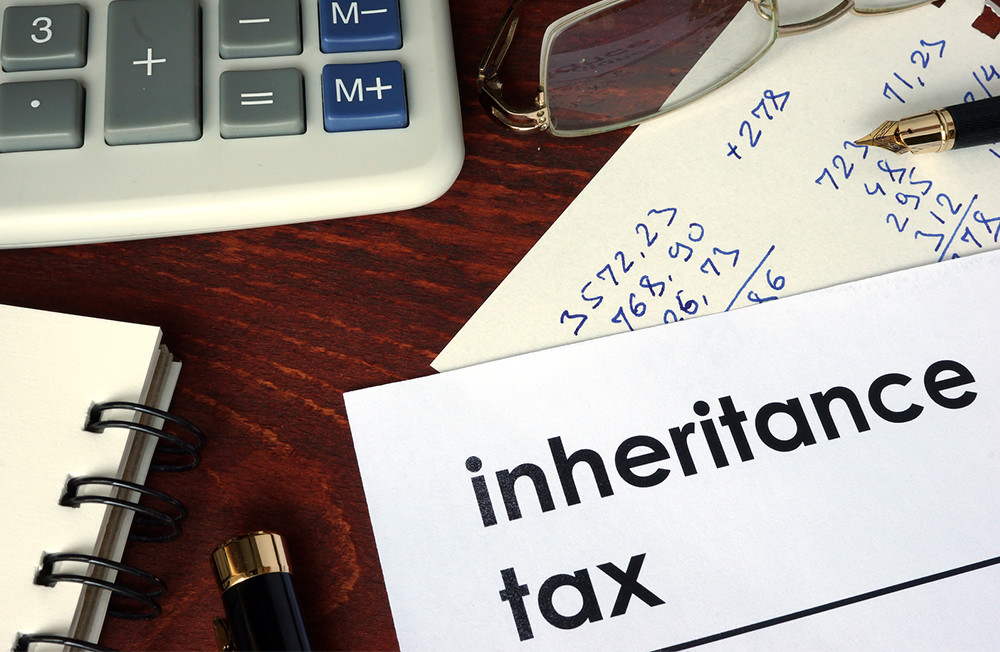
Inheritance tax advice for British expats and non-UK residents
If you were born in the UK and have parents from the UK, or you have assets in the UK, then you should be aware of Inheritance Tax (IHT)
Even if you are a British expat, UK inheritance tax (IHT) will be due on global assets if you are in domicile in the UK and if you fail to tax efficiently plan your estate before you die.
However, there are ways to mitigate inheritance tax legally.
Inheritance tax (IHT) is the tax which is paid on an estate when the owner of that estate dies. Depending on specific criteria, the tax may also be payable on gifts or trusts made during that person’s life.
Typically, IHT is paid by the executor using funds from the deceased’s estate. Trustees with assets in a trust are usually responsible for the payment on IHT in that trust. Sometimes people may have to pay IHT tax on gifts received. However, the payee of IHT depends on several factors, and each circumstance may affect who should pay the IHT owed.
Are British expats and non-residents liable for UK inheritance tax?
Even if you are an expat living outside of the UK, you will still be subject to IHT in the UK if you are to be of a UK domicile status.
If you are a UK domicile and your estate is valued at over £325,000 – your estate will be subject to IHT – either 40% or 36% on the amount over the threshold. Since 2007, this threshold has increased to £650,000 for married couples and civil partners, providing the executors transfer the first spouse/partner’s unused IHT threshold to the second partner when they die. UK spouses can pass their estate to each other tax-free, but their children would receive a bill of 40% over £650,000 when the second parent dies.
It is essential to understand that being classed as non-resident in the UK for tax purposes, as your domicile is unlikely to have changed, you will still be liable for UK inheritance tax.
Domicile explained
The domicile is the country a person officially has as their permanent home or has a substantial connection to. When you were born, regardless of where this is, you follow your parent’s domicile if they were UK Domicile. If your parents were not married, your home of birth would typically be the same as your mother, although this may vary depending on each individual’s circumstances.
Your domicile of origin then continues until you acquire a new home – even if you move abroad, unless you take a specific action, it is unlikely that your domicile will change.
Why is your domicile important?
Among many things, your domicile is essential when determining your tax liabilities in three main areas: your income tax (from investment or employment), Capital Gains Tax (CGT) and IHT.
Your domicile is essential when determining how your estate should be passed on in the event of your death. It is imperative if you own property or financial assets in foreign jurisdictions. The actual management of your estate will depend on each situation, but it’s essential to know whether you live abroad or have assets located abroad.
Deemed Domicile
For British expats who live abroad, there is also a concept of ‘deemed domicile’, which plays a part when calculating inheritance tax on your estate when you die. ‘Deemed domicile’ means that even if you are not domicile in the UK under the general law. HMRC could treat you as domiciled in the UK at the time of a transfer if:-
- you were domiciled in the UK within the three years immediately before the transfer.
OR - you were resident in the UK in at least 15 of the 20 income tax years of assessment ending with the year in which you transferred.
Domicile of choice – changing your Domicile
After the age of 16, you can change your domicile. To do this, you must satisfy several criteria and provide evidence of each. The requirements for changing residence are varied, and each case will be judged on merit. The primary criteria for changing domicile will typically include the following:
- Leaving the country in which you are domicile and settling in another country.
- Provide strong evidence that you intend to live in your new location permanently or indefinitely.
Residency
You are a resident (for tax purposes at least) if you’re present in a country for 183 days or more per tax year – this is true of the UK HMRC and other governments worldwide. Additionally, if you go and work abroad for more than one year, you must not be back in the UK for more than 91 days, on average, 365 days, for the duration of your time abroad.
Sometimes, your return home is unavoidable (for example, for compassionate reasons). In that case, the HMRC may make an exception, providing you can prove that you exceeded the limits through no fault of your own.
There is a Statutory Residence Test, a series of questions asked to determine your tax residence status in the UK:
This is also important during lockdown periods in different countries due to Covid-19. If you “are stuck” somewhere and earning money, be aware that you may stay over the days you are allowed. Without being classed as a resident of that country – being a resident of a country imposes an income tax. For example, as a visitor to the UK, you are allowed to stay 182 days. If you have been in the UK over this period in the fiduciary year (tax year), then they may claim income tax on your earnings from the extension period until your exit.
Ordinarily resident
To be ‘ordinarily resident, the country has to be your ordinary home, where the definition of common means that you spend most of your time there every year and don’t take significant trips abroad.
It is common to be ‘ordinarily resident’, but not ‘resident’ and is often where someone travels overseas for a period (including an entire tax year).
Multiple residencies
You can be resident in more than one country at any given time, and it will entirely depend on how you’ve spent your time and what the rules are in each country – the central issue here is that if you don’t manage it carefully, you may be taxed twice.
The difference between Domicile and Residency
There are to be two ‘domicile’ concepts. One is where you have your permanent home (not the same as residency since that is where you spend your time for tax purposes). The second is your ‘domicile of origin’, where your father’s permanent home was (if your parents were married when you were born, and this changes to your mother if they were not. So, you could have been born in France, but if your father/mother was English, your origin is Britain.
Domicile and residency usually go together, but for specific taxation purposes (e.g. income tax or inheritance tax), your particular mix of residence, ordinary residency, domicile and domicile of origin will make a difference to what tax you have to pay.
If you have a “non-domicile status” in the UK, only UK-based assets will be liable to IHT in the UK.
Mitigating UK IHT as an expat
IHT is a tax on people who need help to plan their estate tax efficiently. With careful planning and independent advice, it is possible to avoid a significant amount of IHT in the UK legally.
In a nutshell, there are two primary methods for expats to legitimately avoid UK IHT and ensure you can pass on their estate to their heirs as much as possible.
Firstly, and most difficult, is to change your country of domicile away from the UK – but this takes time.
Secondly, you protect your estate from IHT by moving them into tax-efficient financial structures.
Changing your country of domicile
While there is no single legal definition of your country of domicile, it will often be established according to three factors. Where you were born, if you have assets in that location and where your father/mother was born.
When determining your country of domicile, the tax man will interpret the conditions and draw their conclusion about whether you are still domicile in the UK. Due to IHT being such a significant revenue earner for the UK government, changing your residence can be difficult and stressful. Even then, your efforts may need to consider more.
Changing your domicile tax status requires much more than simply showing that you now live abroad. I also want to let you know that you have no intention of returning to your original country of residence. You can attempt this in several ways, including:
- Relinquishing your UK passport.
- You are severing all links with social organisations and joining new organisations in your country of residence.
- Purchase property in your country of residence and sell all your UK-based property.
- Closing UK bank accounts.
However, as it is the preserve of the UK tax man when determining whether your country of domicile has changed, this is the less recommended of the two approaches. Of course, you may also be subject to IHT in your new country of residence.
Protecting your assets from IHT
There are ways to mitigate or remove IHT (from your estate) with efficient planning:-
- Write a will (to ensure all allowances will be gifted).
- Gift assets now (to reduce the value of your estate).
- Create a Trust (to remove your ownership of assets).
- Ensure the bill (is cheaper than the bill).
- Set up a pension (future earnings so not taxable and are another form of trust).
OR
- Spend the money (no gift, no tax – but make sure what you have, lasts your lifetime).
Whatever you decide, you need to plan.
Contact us at www.careysuen.com with any questions, and we will be happy to help.

